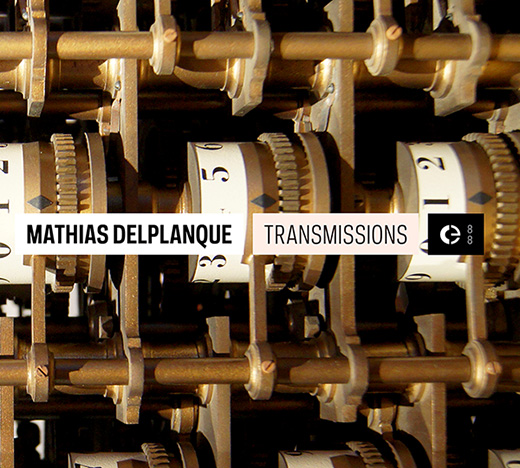
“Transmissions†comes in a card wallet, simply and elegantly adorned with a close-up of machinery workings; this is very apt, since thats precisely the content of the disc, too. The cd has four tracks, ranging in duration from near three minutes, to a mammoth near-forty. All the pieces use the sounds of machines: “Part 1†and â€Part 2“ utilise loom sounds as source material, whereas “Part 3†and Part 4†are more broadly based on “machine-tools soundsâ€. This truly industrial material is fashioned by Delplanque into collaged constructions, flitting between raw sounds and processing.
As you might imagine, there is often a strong rhythmic element to the pieces; though, Delplanque keeps it shifting and modular – there’s no “cheap†recourse to minimalist repetition, here. Rhythms emerge and develop, become layered; before another element enters and changes the direction. “Part 1†contains several sections like this, with the ordered hubbub of disparate machines whirring away in syncopation, before being morphed into underwater-sounding lurches and near-choral drones. The first two tracks (they’re presented in numerical order) are quite sparing and subtle in their use of processing, while the remaining two are perhaps more clearly stretched and transformed. “Part 3†creates a soundscape verging on eeriness and darkness, without perhaps ever achieving that; not that this is a criticism at all: as before, there are very few cheap or easy paths taken by “Transmissionsâ€. “Part 4†welds the atomised, if undoubtedly “physicalâ€, machine sounds to majestic, monolithic drones with cosmic overtones.
This is a very good album indeed, using a potentially small (and limiting) palette of sounds superbly; with no sense of boredom or tiredness. Its further to Delplanque’s credit, that the first two pieces use so many unprocessed sounds – without ever becoming a dry exercise in field-recording. There’s always a temptation in this area, to think that merely coupling and layering “raw†source material is enough: “Transmissions†pushes past that and creates something, not just “with†the materials, but “out†of the materials. Oddly enough, I was listening to the wonderfully stark “Rejector†by the legendary Omit, yesterday and there are clear parallels to be drawn here. Both projects create austere, sometimes even barren, soundscapes out of “primitive†materials; both deal in ambiguous atmospheres and both have an enviable sense of space and environment. This is therefore, most definitely, a recommended album.
Martin P
via Musique Machine
